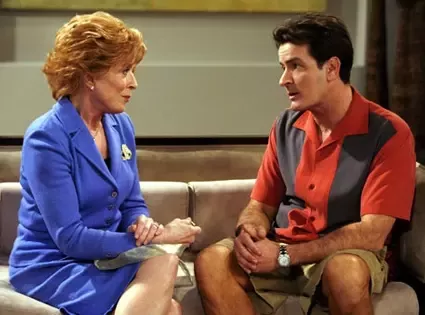Growing up, I always had a close bond with my mother. She was a single parent who raised me with love and care.
She never talked much about my father, except that he died in a car accident when I was a baby.
I never questioned her story, until one day, when I was 18 years old, I stumbled upon a letter in her drawer that changed everything.
While I grew up knowing I only had a single, hardworking, and caring parent, discovering that my biological father was still alive affected me significantly.
Here is how I handled the situation:
How I Found Out the Truth
It was a rainy afternoon and I was bored at home.
I decided to do some cleaning and organizing in my mother’s bedroom.
As I was sorting through her papers, I noticed a yellow envelope with my name on it.
Curious, I opened it and found a letter from a man named David.
David claimed to be my biological father and said he wanted to meet me.
He explained that he and my mother had an affair when she was married to another man, who I thought was my father.
He said he only found out about me when he saw my picture on social media and contacted my mother.
He said he respected her decision to keep me away from him, but he hoped I would give him a chance to be part of my life.
I was shocked and confused. I couldn’t believe what I was reading.
Was this some kind of prank? Or was it true? And if it was true, why did my mother lie to me all these years? How could she do this to me?
If you are in a similar situation, don’t panic or jump to conclusions.
Verify the information and contact the person who claims to be your biological father.
Be cautious and respectful, but also assertive and clear about your intentions and expectations.
My Initial Reactions
I felt a surge of emotions: anger, betrayal, sadness, curiosity, fear.
I wanted to confront my mother right away, but she wasn’t home yet.
I called her several times, but she didn’t answer. I felt like I was going crazy. I didn’t know what to do or who to talk to.
So, I decided to dive into some online research on David. I found his profile on Facebook.
He looked like a successful businessman, with a wife and two kids.
He also looked a lot like me. I felt a strange rash of resentment.
Why did he wait so long to reach out to me? Did he care about me or was he just curious?
I also looked into the man who I thought was my father.
His name was John and he died in a car accident when I was one year old.
He had no other children or relatives. He looked nothing like me. I felt run with doubt.
Was he my father or just a cover-up for my mother’s affair?
If you are going through something similar, don’t suppress or deny your feelings.
They are valid and natural responses to a traumatic event.
Express your feelings in healthy ways, such as talking to someone you trust, writing in a journal, or engaging in physical activities.
How the Revelation Affected My Relationship with My Mother

When my mother came home that evening, I confronted her with the letter.
She broke down in tears and admitted everything.
She said she loved John very much, but their marriage was unhappy and they had trouble conceiving.
She met David at work and had a brief affair with him.
She got pregnant with me and decided to keep the baby, but she didn’t tell David or John the truth.
She said John loved me as his son and never suspected anything.
She said David contacted her a few months ago and she agreed to write him a letter, but she never sent it.
She said she was afraid of losing me and hurting me.
I was furious with her. I felt like she betrayed me aJohn and David.
I felt like she robbed me of my identity and my family history.
I felt like she lied to me all my life. I told her I hated her and stormed out of the house.
I didn’t talk to her for weeks. I ignored her calls and texts.
I stayed with a friend until I found an apartment of my own.
I wanted nothing to do with her.
If you are in this situation, you may need some time and space to process your feelings and thoughts.
You may not be ready to face your mother or hear her side of the story.
You may need to distance yourself from her for a while, or even cut off contact with her completely. That’s OK.
Nevertheless, you may also want to consider the possibility of reconciliation with your mother in the future.
After all, she is still your mother.
How I Coped With the Emotional and Psychological Impact of Discovering This Long-Held Secret
It took me a long time to process what happened.
I felt lost and alone. I didn’t know who I was or where I belonged.
I decided to seek professional counseling to help me deal with the trauma of finding out such a big secret about myself and my family.
It was one of the best decisions I ever made.
My therapist helped me understand that what happened wasn’t my fault and that it didn’t change who I was as a person.
She helped me cope with the anger, guilt, and shame that came with the revelation.
She helped me explore my feelings towards my mother, John, and David.
She also helped me realize that my mother wasn’t a bad person, just a flawed human being who made some mistakes and tried to protect me from them.
She helped me see that my mother loved me very much and that she deserved forgiveness.
I advise anyone who is going through something similar to seek professional help.
Talking to a therapist or a counselor can help you sort out your feelings and cope with the trauma.
They can also help you deal with any issues that might arise, such as depression, anxiety, anger, guilt, or low self-esteem.
Don’t wait until things get worse or until you reach a breaking point.
Don’t think that you are weak or crazy for needing help.
Don’t think that you can do this by yourself or that you don’t deserve help.
Seeking professional counseling is a sign of strength and courage, not weakness or failure.
It is a way of taking care of yourself and your mental health, not a way of giving up or giving in.
It is a way of finding solutions and opportunities, not a way of creating problems or obstacles.
You can find counselors and therapists online, in your community, or through your insurance. You can choose the one that suits your needs, preferences, and budget.
In summary, the benefits of seeking professional counseling are many and varied. You can:
- Gain insight and understanding into your situation and yourself.
- Learn coping skills and strategies to deal with your challenges.
- Heal your emotional and psychological wounds and scars.
- Improve your self-esteem and self-confidence.
- Enhance your relationships and communication skills.
- Find meaning and purpose in your life.
Seeking professional counseling can make a huge difference in your life. It can help you turn a negative situation into a positive one.
Another thing that helped me was finding support from other people who had experienced the same thing.
I joined an online group for people who had discovered they had a different biological father than they thought.
I found comfort and validation in hearing their stories and sharing mine.
I realized I was not alone, and that there was nothing wrong with me.
I learned to accept myself and my situation.
I Discovered My Mother Wasn’t Alone: Many Mothers Lie about Their Child’s Father
As I researched more on this topic, I discovered that my mother wasn’t alone in lying about her child’s father.
According to a past study, up to 30% of children have a different biological father than they think.
There are many reasons why mothers lie about this, including:
- Fear of losing their partner or their child
- Fear of social stigma or judgment
- Fear of violence or abuse
- Fear of legal or financial consequences
- Shame or guilt
- Denial or wishful thinking
- Lack of knowledge or access to genetic testing
- Pressure from family or society
My advice is, try to understand your mother’s perspective and motives.
Try not to judge her harshly or blame her and listen to her side of the story.
However, don’t let her manipulate or guilt-trip you into accepting her lies or forgiving her without question.
You have the right to feel angry, hurt, and betrayed.
Establishing a Relationship with My Biological Father

After a few months of therapy and support, I decided to contact David and meet him in person.
I was nervous and excited at the same time.
He was very happy to hear from me and agreed to meet me at a coffee shop.
He hugged me and told me he was sorry for not being there for me.
We talked for hours and found out we had a lot in common. We shared our stories, our interests, and our dreams.
We decided to keep in touch and see each other regularly.
I felt happy and grateful to have found my biological father and his family.
I felt like I had gained a new part of myself.
My advice to anyone who is facing this dilemma is to weigh the pros and cons carefully before making a move. Think about:
- What you want from this relationship
- What you expect from him.
- How he might react to your contact
- How he might treat you.
- How this might affect your relationship with your mother and other people around you.
If you decide to contact him, be prepared for any outcome. He might be happy and eager to meet you, angry and hostile, supportive and caring, indifferent and distant, etc.
Whatever happens, don’t take it personally or blame yourself.
Don’t let him define your worth or identity.
And finally, remember that you are not alone in this journey. Many people have gone through it and are willing to support you along the way.
Other Secrets Worth Knowing In Discovering and Dealing With the Truth
If you are someone who has found out or suspects that you have a different biological father than you thought, here are some secrets worth knowing in discovering and dealing with the truth:
- You are not alone. Many people have gone through or are going through what you are going through. You can find them online, in support groups, or in counseling.
- You are not to blame. What happened was not your fault and it doesn’t change who you are as a person. You are still worthy of love, respect, and happiness.
- You have choices. You can decide how you want to deal with the situation, whether you want to contact your biological father, whether you want to maintain a relationship with your mother or your social father, and whether you want to tell others or keep it private.
- You have rights. You have the right to know the truth about your paternity, to access your medical history, to inherit from your biological father, and to seek legal or financial support from him.
- You have resources. There are many sources of information, guidance, and assistance available for you, such as books, websites, blogs, podcasts, DNA tests, lawyers, therapists, etc.
Closing Thoughts
While finding out the truth about my paternity was one of the most difficult and painful experiences of my life, it was also one of the most rewarding and empowering ones.
It helped me heal old wounds and create new bonds, find myself and find my family, and write my own story.

